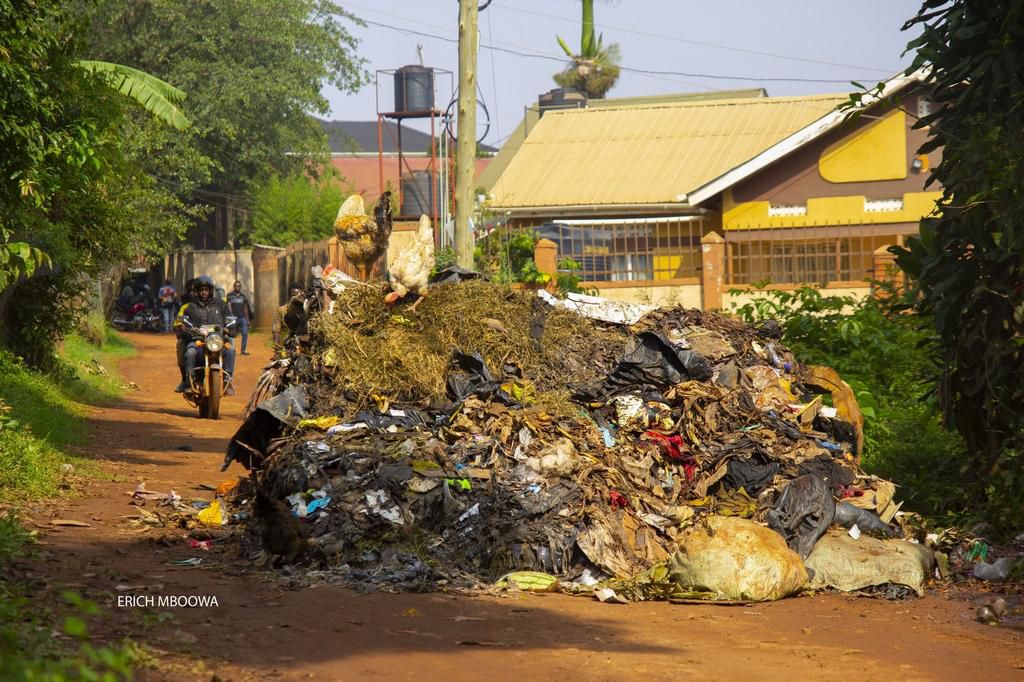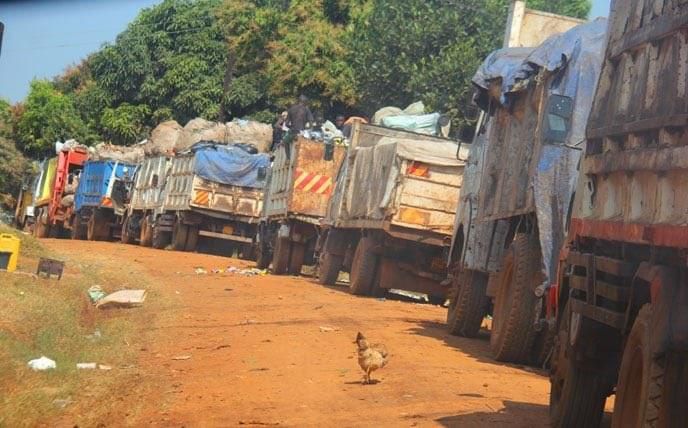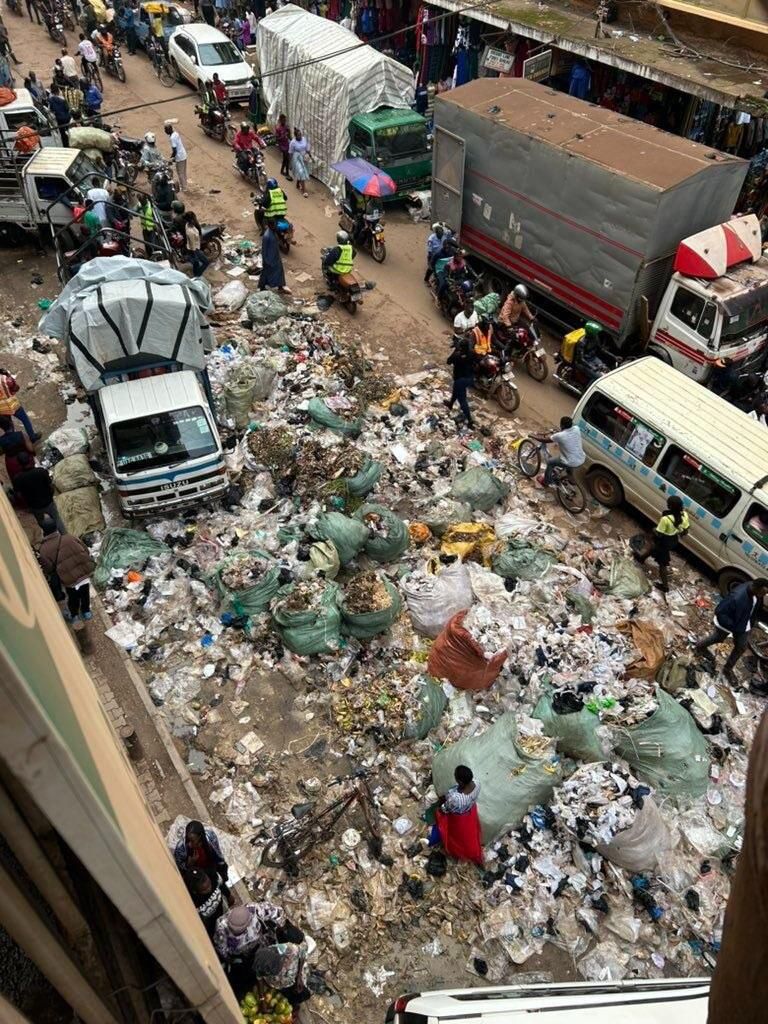Kampala garbage crisis: Rats, diseases loom large as waste piles up
)
As of this week, the Kampala Capital City Authority has no substantive alternative for garbage dumping.
The city received temporary permission from Entebbe Municipality to dump the garbage from Kampala at the Nkumba - Bufulu landfill. This permission has since been rescinded and talks are ongoing to revive it.
This has left the city teeming with uncollected garbage from markets, and people's residences.

Reports have also emerged of some private collection companies resorting dumping garbage in the middle of the road.
As the city scrambles to find an alternative dumping site, the uncollected garbage accumulating across the city poses significant health and environmental risks, especially with the rainy season underway.
Here are the key dangers Kampala faces if an urgent solution isn't found:
1. Rat Infestations
Uncollected garbage, particularly in large urban areas like Kampala, creates a perfect breeding ground for rats. These rodents are not just a nuisance; they are carriers of diseases such as leptospirosis, hantavirus, and even plague. As garbage piles up in markets and residential areas, the risk of a rat infestation skyrockets, potentially leading to widespread health crises.

2. Water Contamination
With the onset of the rainy season, the danger of water contamination increases. Rainwater can easily carry waste into water sources, spreading harmful bacteria and toxins. This contamination can lead to outbreaks of waterborne diseases like cholera, dysentery, and typhoid, which can devastate the population, especially in densely populated areas.
3. Increased Disease Transmission
The accumulation of waste creates breeding grounds for mosquitoes, flies, and other pests that are vectors for diseases such as malaria, dengue, and diarrheal diseases. The stagnant water that often accompanies uncollected waste during the rainy season further exacerbates this issue, increasing the likelihood of disease transmission.

4. Fire Hazards
Accumulated garbage, especially in dry conditions before the rains fully set in, can become a fire hazard. Organic waste generates methane as it decomposes, which is highly flammable. A spark could ignite these waste piles, leading to uncontrolled fires that could spread rapidly, especially in slum areas.
5. Air Pollution
As the garbage decomposes, it emits harmful gases, including methane and carbon dioxide, contributing to air pollution. This not only worsens the city’s air quality but also poses direct health risks to residents, including respiratory issues like asthma and bronchitis. In areas close to the former landfill, these effects are already being felt.
6. Erosion and Landslides
The Kiteezi landfill collapse has shown the devastating effects of erosion when waste piles become unstable. As garbage continues to accumulate in makeshift dumps around the city, there’s a heightened risk of similar incidents. The rains could trigger more landslides, especially in areas where garbage is dumped on steep slopes, putting lives and property at risk.
7. Economic Consequences
The ongoing garbage crisis has a direct impact on Kampala's economy. Markets clogged with waste deter customers, affecting traders' livelihoods. Additionally, the cost of dealing with health crises, potential fires, and the cleanup after floods or landslides adds to the financial strain on both the government and the residents.
8. Social Unrest
As the garbage crisis worsens, frustration among residents is growing. There have already been reports of garbage being dumped in the middle of roads and near homes, indicating the public's desperation. If the situation isn’t addressed swiftly, there’s a risk of social unrest as communities demand action from authorities.
The collapse of the Kiteezi landfill has highlighted the urgent need for a sustainable waste management strategy in Kampala. With temporary dumping solutions like the Nkumba - Bufulu landfill in Entebbe falling through, the city is at a critical juncture. The Kampala Capital City Authority (KCCA) must expedite negotiations and explore new technologies for waste disposal to prevent a full-blown public health crisis.
The need for immediate and innovative solutions cannot be overstated. As Kampala navigates this crisis, the health and safety of its residents hang in the balance.
)
)
)
)
)
)
)